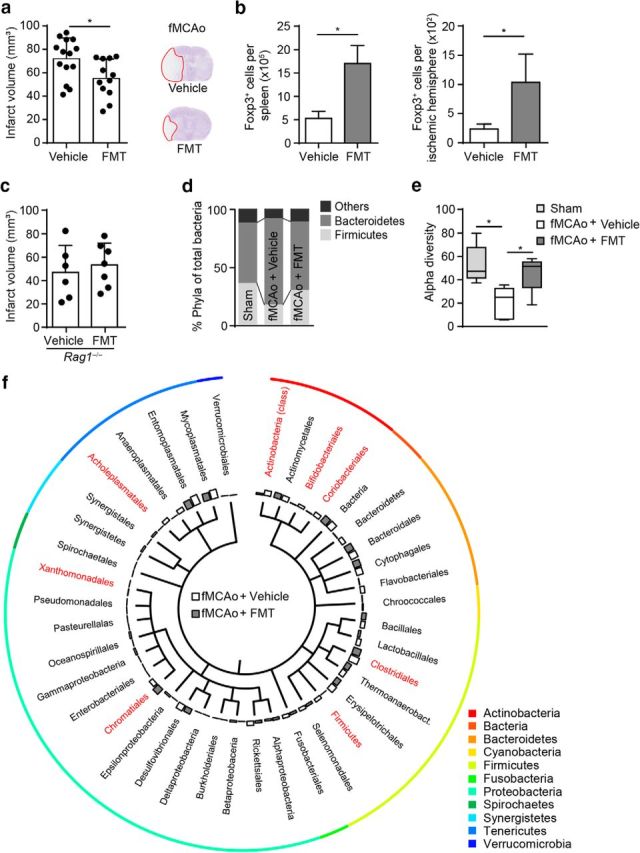Figure 6.

Fecal microbiota transplantation improves stroke outcome. a, Brain infarct volume 3 d after fMCAo was compared between mice receiving vehicle or FMT; FMT treatment significantly reduced brain lesion volume (three independent experiments). b, Flow cytometric analysis shows increased Foxp3+ Treg cell counts in spleens and ischemic hemispheres after FMT treatment compared with controls 3 d after fMCAo (n = 5 per group). c, Brain infarct volume 3 d after fMCAo in lymphocyte-deficient Rag1−/− mice did not differ between vehicle and FMT treatment, suggesting a lymphocyte-mediated effect (two independent experiments). d, FMT treatment normalized microbiota composition after fMCAo-induced dysbiosis as demonstrated by the taxonomic abundance of eubacterial phyla. Note the normalization in the abundance ratio between Firmicutes, Bacteroidetes, and the less abundant phyla (others) in the FMT-treated group. e, Analysis of the corresponding α diversity by the Shannon diversity index showing that FMT treatment partially reversed the reduced species diversity induced by fMCAo (n = 5 mice per group). f, Phylogenetic tree illustrating the distribution of the identified bacterial orders comparing vehicle- and FMT-treated mice 3 d after fMCAo. Orders that significantly differed between groups are highlighted in red (n = 5 mice per group, t test [unpaired]). All bar graphs: *p < 0.05, mean ± SD.
